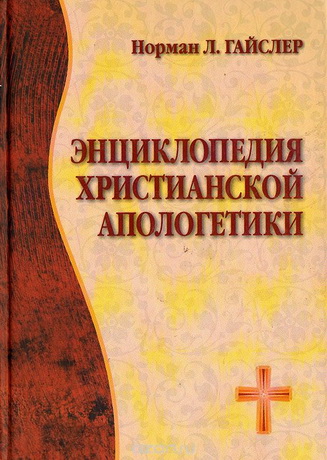
Kilgallen – A Brief Commentary on the Gospel of Matthew
The gospel of Matthew has been considered for over fifteen hundred years to be the “premier gospel.” We will point up some of the reasons for this high esteem in a few moments, but suffice it to say for this moment that “premier” designates a writing which, judges say, has provided the greatest variety of insights concerning the meaning of Christianity. Certainly, Matthew’s gospel ranks highest in the breadth of its moral teachings, though certain key moral issues in Christianity are best highlighted in Luke’s gospel. Though no one is so explicitly able to reach to the depths of the meaning of Jesus’ identity as is John, Matthew’s perception of the truth about Jesus is profound. And though John’s gospel has insights found nowhere else concerning the sacraments, Matthew excels all in his teaching about the church, its leadership and certain of its sacraments.
Where Did Matthew’s Gospel Come From?
This is a thorny question, or, better, there is more than one answer which holds sway today among scholars, and there seems to be no agreement available in the foreseeable future. To start with the easiest and most agreed upon partial answer about the beginning of this gospel, we can say that Syria and perhaps Antioch, of which little is left now, are the country and city in which the gospel was written. This area is not far from Palestine, the territory with which the gospel concerns itself.
A second, partial answer, with which most scholars agree, is that the gospel of Matthew has for its audience Christians who are mostly Jewish converts. Thus, we would say that the gospel sprang up within a predominantly Jewish Christian culture, which in turn means that we can expect the gospel to be built on language and expectations drawn heavily from the backgrounds of Jews turned Christians.
Now for the disputed part.
Who Is Matthew?
As with most all the documents of the New Testament, early tradition held that the gospel was written by the person whose name is on it—in this case Matthew. One should realize that, to scholars today, it is impossible to trace this tradition to the person or persons who began it, and it is impossible to prove without a doubt that Matthew actually did write this gospel. Not that this impossibility should make us deny that Matthew wrote the gospel; far from it. It only means to say that we can no longer get back to the source from which the tradition arose.
One must also take into consideration that a major reason in the earliest Christian times (e.g., 150 B.C.) for establishing that Matthew was the author of the gospel is the early Christian’s need to answer the question, “How do you know that what this gospel reports is trustworthy, worthy of belief?” In the case of this gospel, the answer is clear: Matthew, one of the twelve (and therefore one of the most intimate friends of Jesus and one of those closest to almost everything that happened), is the author—and who is more honest and believable than Matthew? Yes, this is the Matthew who was an untrustworthy tax collector before he met Jesus, but, with his conversion and devotion, now deserves our trust.
John J. Kilgallen – A Brief Commentary on the Gospel of Matthew
Lewiston, NY: The Edwin Mellen Press, 1992. – 249 p.
ISBN 0-7734-2350-8
John J. Kilgallen – A Brief Commentary on the Gospel of Matthew – Contents
Introduction і
- Chapter 1
- Chapter 2
- Chapter 3
- Chapter 4
- Chapter 5
- Chapter 6
- Chapter 7
- Chapter 8
- Chapter 9
- Chapter 10
- Chapter 11
- Chapter 12
- Chapter 13
- Chapter 14
- Chapter 15
- Chapter 16
- Chapter 17
- Chapter 18
- Chapter 19
- Chapter 20
- Chapter 21
- Chapter 22
- Chapter 23
- Chapter 24
- Chapter 25
- Chapter 26
- Chapter 27
- Chapter 28
Conclusion
Bibliography
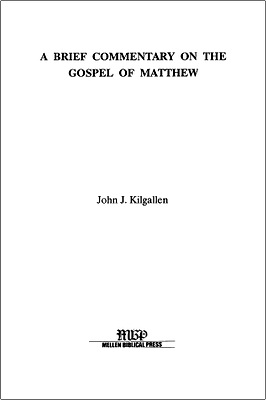
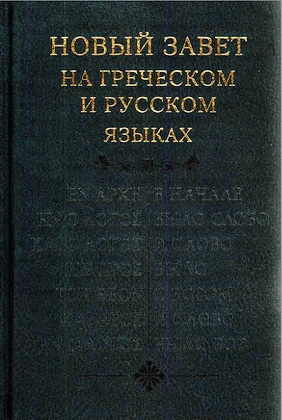
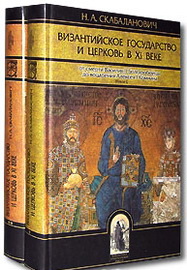
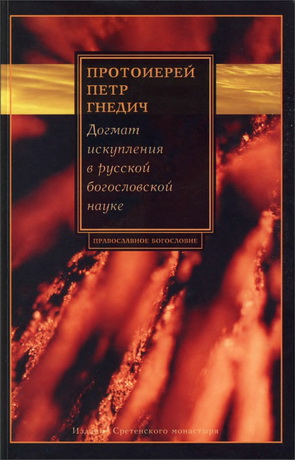
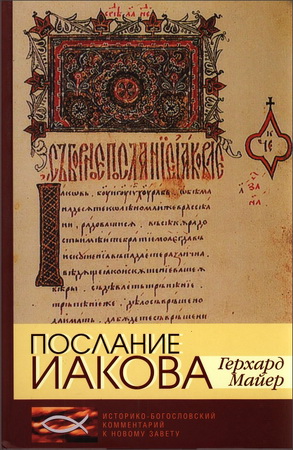
Комментарии (1 комментарий)
Большое спасибо!